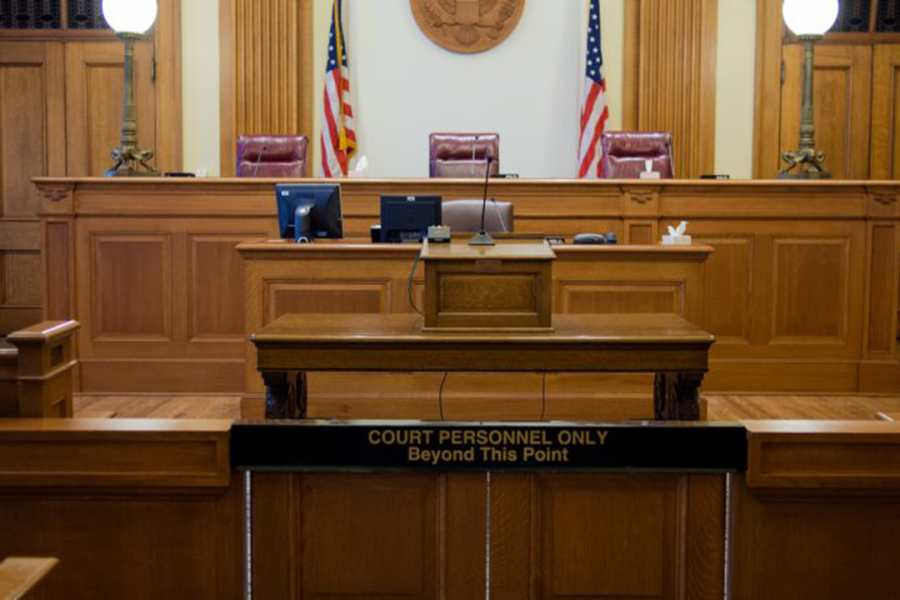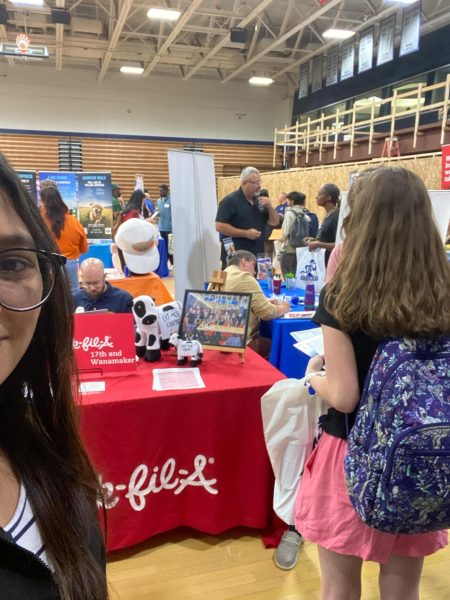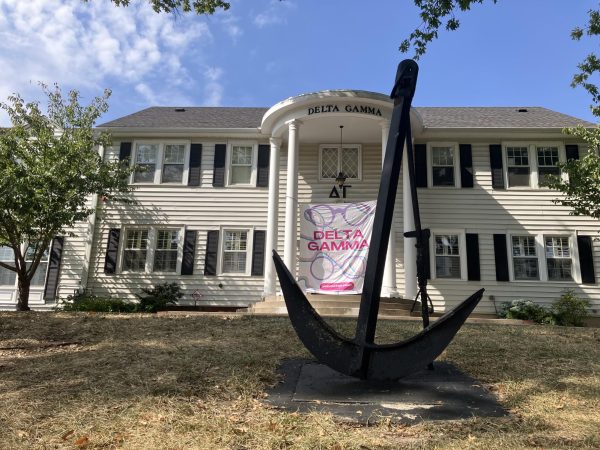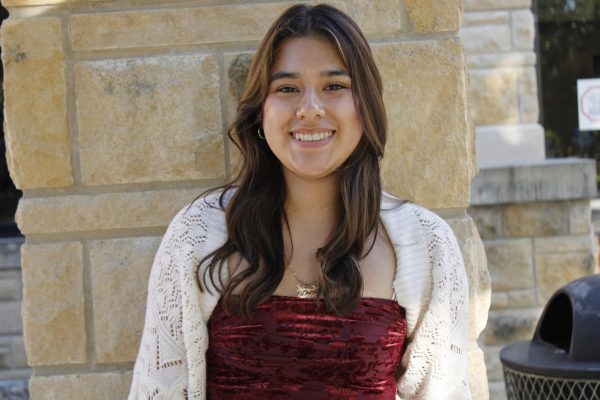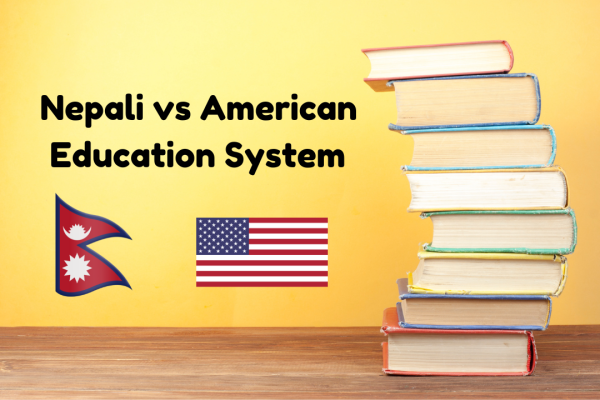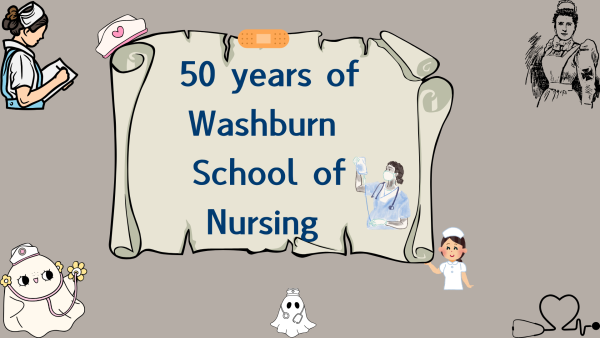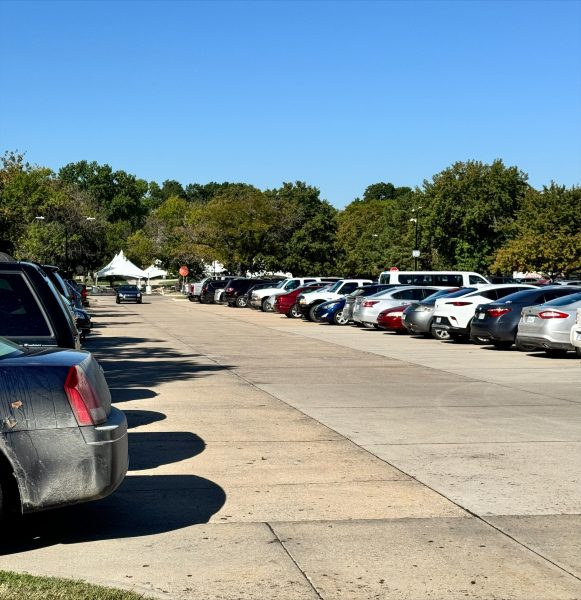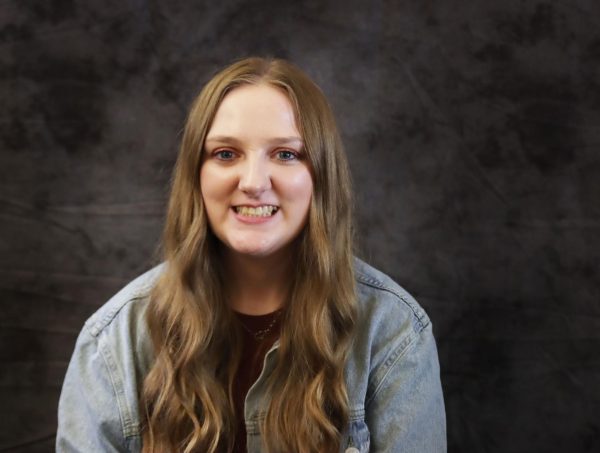OPINION: Washburn’s mock trial team gives Ichabods new opportunities
A courtroom that courts use for trials. Washburn’s Mock Trial team competed in similar courtrooms while attending a tournament in Arlington, Texas.
Have you ever watched “Suits” or played the “Ace Attorney” video games and wondered what it’s like to be in a courtroom? If that’s the case, then Washburn’s mock trial team is the competition, activity or class for you.
Mock trial is a class as well as an activity in which Washburn students can compete in national tournaments.
“Mock trial is a trial competition between college students. Six students on each team compete against teams from other colleges,” said volunteer coach, Jay Hall.
Hall competed in mock trials as an undergrad alongside his then peer Danielle Hall, the team’s coach and a professor at Washburn Law. After competing in mock trials in undergraduate, both of the Halls went on to become attorneys.
Mock trial also offers scholarships to its students who compete throughout the year.
Although it might be what the activity sounds like on first impression, mock trials aren’t all attorneys arguing objections. Half of the team plays attorneys with unique roles and the other half plays unique witnesses.
“[Attorneys] will do openings, closings, direct examinations and cross-examinations,” Hall said.
As for witnesses, those students will play a unique character.
For this year’s trial, teams argue in a civil case about a lethal plane crash. On the plaintiff’s side, attorneys argue on behalf of a widow whose spouse died in a crash because of the flight company’s negligence. On the defense side, attorneys will argue that a mistake by the flight company was not the cause of the crash.
Mock trial teams have to prepare for being on either the plaintiff or the defense side of a trial, but members of the team are often designated to prepare for only one side. Each mock trial team will have a different lineup for each side.
An additional feature of mock trial is objection battles, which are similar to what one would see on TV. Because objections are based on rules of evidence specific to each year’s case, students who play the attorneys analyze rules of evidence like real attorneys do.
Assistant coach Olivia Higdon, who is a law student as well as a former competitor on the team, advocated the benefits mock trial provides in law school.
“It helps you in law school because you have a better understanding of the concepts going in,” Higdon said.
Although mock trial can be an excellent preparation for students who want to go to law school, students from other disciplines can benefit from the experience.
If students want to focus on acting, playing a witness would be perfect for them. Playing a witness requires both memorization of your character and developing your own style.
A good witness can be extremely creative in their answers, clothes and how they speak. Most attorneys my team faced at nationals had either British or southern accents (we were in Texas, but those were not real accents).
Higdon shared this sentiment when she played an expert witness while on the team. While playing an ER doctor, she used bedside manner in every question she was asked.
Universally, mock trials also help with public speaking. Team member and senior political science major, Koy Olberding, echoed this sentiment by sharing how his opening speeches helped him learn to adapt to the adrenaline felt before a speech.
“Trying to focus [adrenaline] into an opening statement and energy and emotions into a positive way is a really cool skill and talent that I’ve learned,” Olberding said.
As I work for the Washburn Review, it might not be surprising that I am a mass media major with no plans of going to graduate or law school. Despite that fact, playing an attorney in mock trial has helped me work on the interviewing skills I use regularly for both my job and my classes.
When I ask questions to witnesses, I focus on my confidence, natural flow of conversation and memorizing key questions. The most important skill from cross-examination is active listening, which means adapting my questions to the other team’s responses and arguments. For example, in my team’s final round at regionals, the opposing team ran a theory of the case that I was completely unprepared for. But with active listening, I used their own evidence against them. Adapting to new arguments makes it much easier to work with unexpected answers in interviews. With skill sets like these, it can be much easier for anyone to advance a career in life.
Students interested in participating should email the team’s coach, Danielle Hall to set up a meeting to discuss more about mock trial, the team and requirements. Students may reach out before the end of the semester.
Edited by Glorianna Noland and Christina Noland
Your donation will support the student journalists of Washburn University. Your contribution will allow us to purchase equipment and cover our annual website hosting costs.



